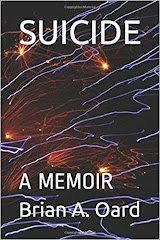The banal core of Jacques Derrida's philosophy can be represented by a STOP AHEAD sign: a sign referring to another sign that orders the reader to stop at the sign.
The three great hedgehogs of postmodernism each knew one big thing. In Foucault's case, it was the discourse construction of reality (called "social construction" when Berger and Luckmann wrote about it); for Lacan, it was the idea that the mind is structured like language (nothing earth-shattering there, either; the linguistic analogy was a Structuralist rhetorical cliche). Derrida's One Big Idea, the idea from which all of his subsequent work flowed, was his Saussure-influenced disconnection of signifier and signified. Language refers only to language, signs only to signs. Il n'y a pas de hors-texte, as every trendy American academic of the 1970s and 80s tiresomely reminded us... (And even this was hardly a new idea. If we had paid attention to Mallarme, we would've yawned at Derrida.)
Here's a little anti-Derridean thought experiment: Consider what happens immediately in your mind when you read the following word: Tree. Only you can know what happened in your mind, but mine flashed on a mental image of a generalized tree (thick brown trunk, leafy green boughs) of a species rarely found in nature but often encountered in children's drawings. The signified is a simple image abstracted from experience, not a sign pointing to other signs in a gloriously inescapable Borgesian regression. The truth of signification is dumber than Derrida.
That said, I still find much in Derrida's work that is interesting and valuable. If being fundamentally wrong invalidated all the writings of a philosopher, who before Nietzsche would still be worth reading? No, philosophies are not mathematical problems in which early errors throw off all subsequent calculations. (Well, maybe Aquinas is like that...) Regardless of its almost certainly incorrect linguistic base, Derrida's work--especially the earlier books--deserves to be read for the close attention that it encourages us to pay to the rhetorical structure and polyvocality of texts. (Of course, the New Critics offered as much, albeit in the service of a reactionary worldview.)
Wednesday, June 3, 2009
Subscribe to:
Post Comments (Atom)










No comments:
Post a Comment